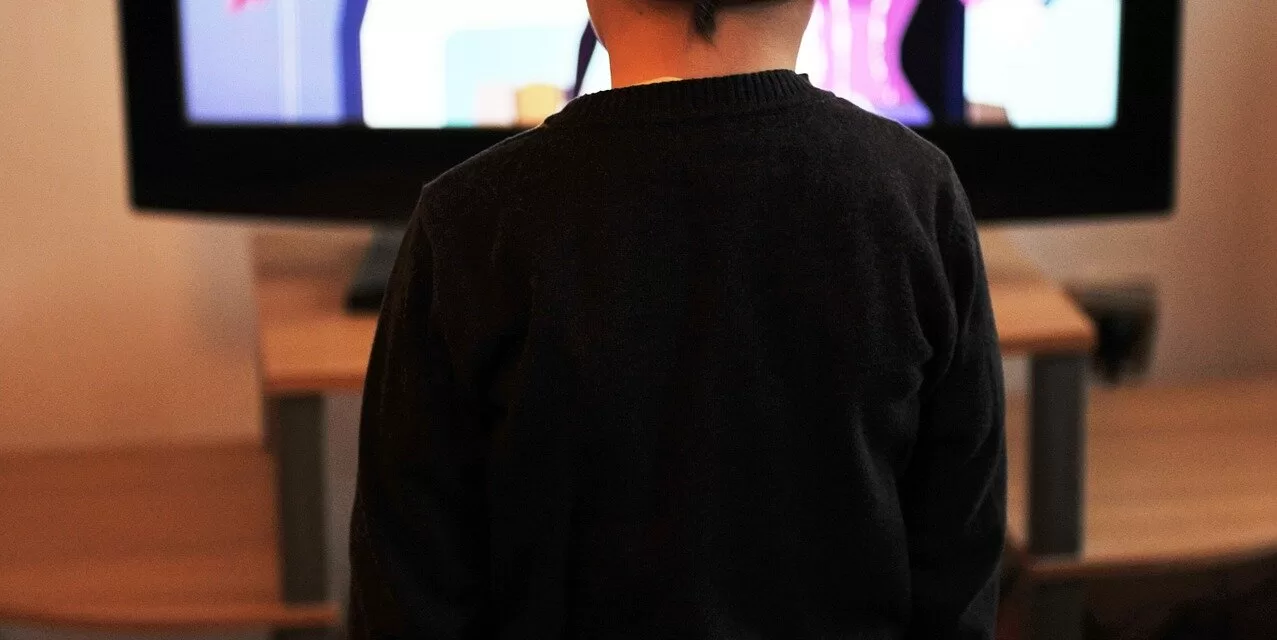A recent study reveals a concerning link between excessive screen time and sleep problems in preschool-age children, which in turn exacerbates issues such as poor attention, hyperactivity, and emotional instability.
Published in Early Child Development and Care, the study shows that screen time is “significantly” correlated with increased hyperactivity and emotional symptoms, as well as decreased sleep quality. The research, conducted by experts from China and Canada, emphasizes that poor sleep quality is also closely tied to behavioral problems like hyperactive attention difficulties, emotional symptoms, and issues with peers.
The study suggests that sleep quality acts as a mediator between screen time and these behavioral issues. In other words, excessive screen time may disrupt sleep, which in turn worsens attention problems and emotional symptoms.
“Our results indicate that excessive screen time can leave the brains of preschool children in an excited state, leading to poor sleep quality and duration,” explained Professor Yan Li, the corresponding author of the study and an expert in preschool education at Shanghai Normal University.
Lead author Dr. Shujin Zhou, a psychologist from Shanghai Normal University, added that this disrupted sleep could be caused by delayed bedtimes due to screen viewing and overstimulation from devices. “Screen use might also displace time that could have been spent sleeping and increase levels of physiological and psychological arousal, leading to difficulties in falling asleep,” Zhou said.
The study was based on surveys completed by the mothers of 571 preschool children, aged three to six, from seven public kindergartens in Shanghai. The mothers reported how much time their children spent on electronic screens (TV, smartphones, computers, etc.) and assessed any behavioral problems their children displayed, including attention difficulties, emotional symptoms like frequent complaints of illness, and peer-related issues such as loneliness or social withdrawal. Additionally, the mothers provided information on their children’s sleep quality and duration.
The results suggest a cyclical pattern where increased screen time and sleep disturbances worsen each other, heightening the risk of hyperactivity, anxiety, and depression. Dr. Bowen Xiao, a co-author of the study and an expert in children’s socio-emotional development at Carleton University, pointed out, “Increased screen time and sleep disturbances exacerbate each other through cyclic reinforcement.”
The findings may have important implications for addressing behavioral problems in young children. According to Dr. Zhou, limiting screen time for preschoolers could help alleviate these problems. “Understanding the role of screen use and its link to behavioral issues during the COVID-19 pandemic is crucial,” Zhou noted.
The research team suggests that sleep interventions could help mitigate the negative effects of screen time on children’s behavior. However, they acknowledge limitations in the study, such as potential biases from the self-reported data. Future studies should consider using scientific instruments to monitor sleep quality more accurately.
In conclusion, the study provides compelling evidence for parents and caregivers to reconsider screen time for young children, emphasizing the importance of good sleep and its role in minimizing behavioral problems.












